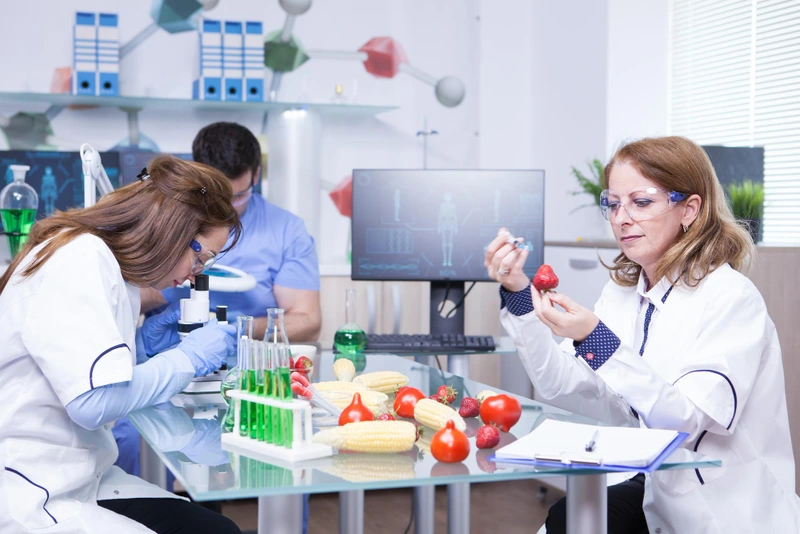- Published on: Apr 05, 2020
- 2 minute read
- By: Dr Rajan Choudhary
BiPAP Unveiled: Your Guide To Better Sleep
Do you often find yourself waking up fatigued, struggling to stay awake during the day, or experiencing persistent snoring? If so, you may be one of the millions affected by sleep apnea. But fear not! In the realm of respiratory therapy, BiPAP, short for Bilevel or Two-Level Positive Airway Pressure, emerges as a beacon of hope. Let's delve into the intricacies of BiPAP machines, explore their connection to sleep apnea, and understand how they differ from the well-known CPAP machines. Join us on this journey towards better sleep and improved well-being.
Understanding the Basics of BiPAP
BiPAP stands for Bilevel or Two-Level Positive Airway Pressure. It's a non-invasive form of therapy that helps individuals with breathing difficulties, particularly those affected by sleep apnea. Unlike its cousin, the CPAP (Continuous Positive Airway Pressure) machine, BiPAP provides two levels of pressure: a higher pressure for inhalation and a lower pressure for exhalation.
The Connection to Sleep Apnea
Imagine a scenario where your breathing repeatedly stops and starts during sleep. This is the hallmark of sleep apnea, a condition that disrupts your rest and can have serious health consequences. BiPAP machines, with their dual pressure settings, are designed to alleviate the challenges posed by sleep apnea, ensuring a more restful night's sleep.
The Nuances of BiPAP vs. CPAP
Distinguishing BiPAP from CPAP: Understanding the key differences between BiPAP and CPAP is crucial for making informed decisions about your respiratory health.
Flexibility in Pressure
-
BiPAP offers a dynamic approach with two pressure settings, catering to the natural rhythm of your breathing.
-
CPAP, on the other hand, provides a constant, single pressure throughout the breathing cycle.
Patient Comfort
-
BiPAP's ability to adjust pressure during exhalation enhances comfort, making it a preferred choice for those who find CPAP too rigid.
-
CPAP, while effective, may feel more restrictive due to its continuous pressure.
Adaptability for Conditions
-
BiPAP is often recommended for individuals with complex sleep disorders or those requiring different pressure levels.
-
CPAP is typically prescribed for straightforward cases of obstructive sleep apnea.
Unlocking the Benefits of BiPAP Machines
Tailored Treatment for Sleep Apnea BiPAP machines offer a personalized approach to sleep apnea treatment, adapting to the individual's breathing patterns. This not only enhances comfort but also promotes better adherence to therapy, a crucial factor in managing sleep apnea effectively.
Online Doctor Consultation: A Convenient Path to Wellness In today's fast-paced world, convenience is key. Fortunately, the realm of healthcare has evolved to meet these demands. With the advent of online doctor consultation , getting a prescription for your BiPAP machine has never been easier. Simply connect with a healthcare professional from the comfort of your home, discuss your symptoms, and receive the guidance you need.
Choosing the Right BiPAP Machine
When venturing into the world of BiPAP machines, it's essential to choose the right model for your needs. Consider factors such as mask comfort, noise level, and additional features like heated humidifiers. Your journey towards better sleep starts with selecting the BiPAP machine that aligns with your lifestyle.
Apnea Definition: Grasping the Importance of Continuous Positive Airway Pressure
Understanding the term 'apnea' is crucial in appreciating the significance of Continuous Positive Airway Pressure (CPAP). Apnea refers to the temporary cessation of breathing. CPAP machines work by delivering a continuous stream of air to prevent these interruptions, maintaining an open airway throughout the night.
Conclusion:
As we conclude our exploration of BiPAP and its transformative role in treating sleep apnea, it's evident that this era of progress brings us closer to nights of deep rest and healthier lives. Whether you're a sleep apnea warrior seeking a more comfortable therapy or someone intrigued by advancements in respiratory care, BiPAP stands as a testament to the ongoing evolution of medical science. Seize control of your sleep, consult with an online doctor, and embark on a journey toward the rejuvenating rest you deserve. In the pursuit of improved sleep, BiPAP machines emerge as champions, offering a personalized and adaptable solution to the challenges of sleep apnea. Are you prepared to say goodbye to restless nights and embrace the transformative power of Bilevel or Two-Level Positive Airway Pressure? The path to a well-rested future begins with a simple question: How can BiPAP enhance your life?
Read FAQs
A. BiPAP, with its dual pressure settings, helps manage sleep apnea, ensuring uninterrupted breathing and promoting restful sleep. Users often experience significant improvements in sleep quality.
A. The duration varies but generally aligns with your regular sleep patterns. Consult your healthcare provider for personalized guidance. Consistent use, especially throughout the night, maximizes the benefits of BiPAP therapy.
A. Individual responses vary, but many users report feeling better within a few nights. The effectiveness of BiPAP in alleviating symptoms like daytime fatigue and snoring can contribute to an overall sense of well-being shortly after starting therapy.
Our Services
Request A Callback
Recent Posts
Top 5 Blood Tests You Shouldn’t Skip After 40
May 17,2025










